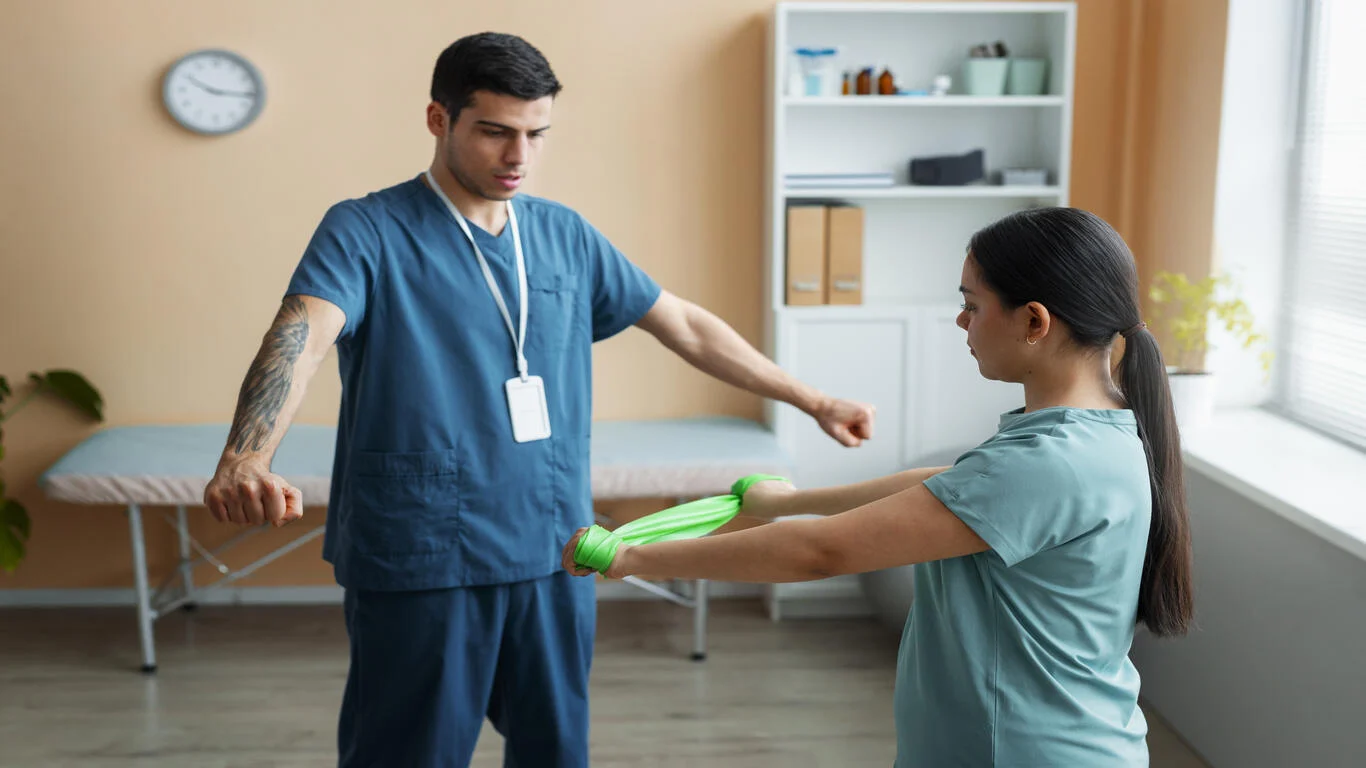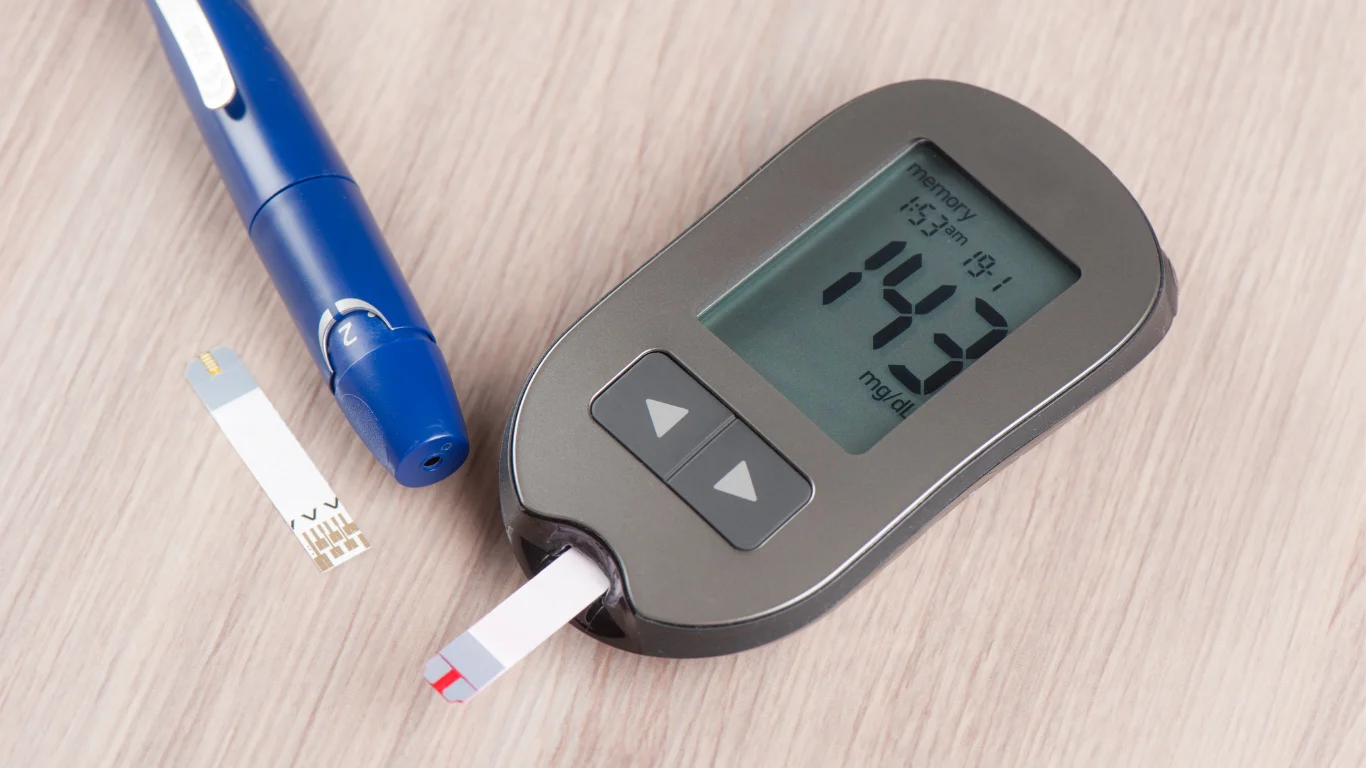How to Manage Pain at Home?
Managing pain at home is becoming an increasingly popular choice for many, especially in a dynamic city like Dubai where the pace of life rarely slows down. This shift towards home-based care is not just about convenience; it represents a deeper, more holistic approach to wellness that integrates both modern medical practices and time-honored health traditions.
This article will delve into unique and thoughtful strategies for managing pain at home. It will explore the nuances of creating a supportive home environment that not only alleviates pain but also enhances overall well-being. We’ll look at the less commonly discussed aspects of pain management that can make a significant difference in how individuals cope with pain on a daily basis. As we unpack these strategies, remember that integrating professional care, like the services provided by Best DOC Home Healthcare, can complement these home-based approaches, offering a comprehensive solution to pain management.
Understanding and Applying Holistic Pain Management Strategies
When managing pain at home, it is essential to approach the issue from a holistic perspective that encompasses not only physical remedies but also psychological and social aspects. A valuable resource that outlines this approach comprehensively is an article from the NHS, which discusses various strategies for pain management. Read more about these strategies here.
Embracing Community and Communication
Talking to Others
Engaging with individuals who have faced similar pain challenges can provide not only moral support but also practical advice that might not be readily available through traditional medical consultations. Sharing experiences and coping strategies can help alleviate the emotional burden of chronic pain.
Staying Connected
Maintaining social contacts with friends and family is crucial. Isolation can exacerbate feelings of pain and helplessness. Regular interaction, even if virtual, helps strengthen emotional support networks that are vital for long-term pain management.
Enhancing Routine and Lifestyle
Maintaining a Regular Sleep Routine
Sleep is a critical component of the body’s healing process. Establishing and maintaining a regular sleep routine can significantly improve pain management. A consistent sleep schedule helps regulate body cycles and can enhance the effectiveness of other pain management strategies.
Practicing Relaxation and Mindfulness
Relaxation techniques such as deep breathing, meditation, or yoga can significantly reduce stress levels, which often exacerbate pain. Mindfulness practices help in developing a greater awareness of the body and its pain responses, enabling better control over discomfort.
Engaging in Gentle Exercise
Physical activity is an essential part of managing pain. Gentle exercises, tailored to individual capabilities and limitations, can help strengthen muscles and improve mobility, thereby reducing the intensity of pain over time.
Developing Self-Management Skills
Breathing Techniques
Learning and practicing targeted breathing exercises can aid in controlling pain, especially during acute pain episodes. These techniques help focus the mind away from the pain and relax the muscles, reducing overall discomfort.
Educating Oneself About Pain Management
Knowledge is power when it comes to managing pain. Reading up on pain management can equip individuals with the tools they need to understand their pain better and explore various coping mechanisms.
Seeking Psychological Support
Talking therapies like cognitive behavioral therapy (CBT) can be very effective in managing the psychological impacts of chronic pain. These therapies help individuals change their pain responses and develop healthier coping mechanisms.
Distraction Techniques
Sometimes, the best way to manage pain is to distract the mind from it. Engaging in hobbies, watching movies, or participating in community activities can provide temporary relief and improve overall mental health.
By integrating these strategies into daily life, individuals can manage their pain more effectively from the comfort of their own homes. It’s important to remember that while these methods are helpful, integrating professional healthcare services when needed can provide a more comprehensive care approach.
At-Home Treatments and Remedies
As we explore managing pain from a holistic perspective, incorporating various at-home treatments and remedies becomes crucial. These strategies can be simple yet effective, providing relief and enhancing the overall quality of life. This section delves into practical home-based solutions that are often underutilized or not commonly discussed in mainstream discussions.
Heat and Cold Therapy
Innovative Applications of Heat and Cold
While the use of heat or ice packs is widely recognized for pain relief, the strategic integration of these treatments can optimize their effectiveness. For instance, alternating between heat and cold therapy can help manage inflammation and soothe muscle spasms more effectively than using either method alone. Additionally, incorporating aromatherapy with heat pads or adding menthol to cold packs can enhance the sensory experience, providing not only physical relief but also a mental calming effect.
Over-the-Counter Solutions
Beyond Common Analgesics
While over-the-counter medications are a go-to for pain management, their usage can be optimized. Combining OTC anti-inflammatory drugs with natural supplements like omega-3 fatty acids can enhance pain relief and reduce side effects. Moreover, understanding the correct timing and dosing can significantly increase the effectiveness of these medications.
Herbal and Natural Supplements
Underexplored Natural Remedies
Many herbal and natural supplements have historical evidence suggesting their efficacy in pain management, yet they remain underutilized. For example, compounds such as capsaicin, derived from chili peppers, can be used topically to alleviate joint and muscle pain. Additionally, supplements like willow bark, known as nature’s aspirin, offer an alternative for those seeking a more natural approach to managing pain.
By incorporating these at-home treatments and remedies, individuals can take an active role in managing their pain with methods that extend beyond conventional pharmaceuticals. These strategies not only provide physical relief but also empower patients to maintain control over their pain management journey.
Advanced Home Care Options
In the quest to manage pain effectively at home, it’s critical to challenge conventional thinking and embrace innovative healthcare solutions. Traditional methods, while valuable, often fall short of addressing the complex needs of chronic pain sufferers. This section explores advanced home care options that merge professional expertise with the comfort of home-based care, challenging our typical understanding of pain management strategies.
Physiotherapy Techniques
Redefining Physiotherapy in Home Settings
Physiotherapy has long been confined to clinical settings, but bringing these services into the home can revolutionize pain management. Home-based physiotherapy allows for personalized care in an environment where the patient feels most comfortable, potentially enhancing the efficacy of treatments.
Techniques that might seem standard in a clinic, like manual therapy or customized exercise routines, can be adapted to fit the unique confines and needs of a home setting. This personalized approach not only ensures that treatments are more directly applicable to everyday activities but also enhances adherence to therapeutic regimens. For those interested in exploring how physiotherapy can be seamlessly integrated into home care, Best DOC Home Healthcare provides Physiotherapy at Home service tailored to individual needs right at your doorstep.
Professional Home Health Care Services
Expanding the Scope of Home Health Care
Often, home health care is viewed merely as a supportive service, yet it has the potential to be the cornerstone of effective chronic pain management. Incorporating professional health services such as in-home nursing or specialized care plans can significantly elevate the level of care. These services can include everything from routine assessments to more complex interventions like IV therapy for pain management, all administered in the patient’s home. Additionally, Best DOC Home Healthcare offers doctor and nurse visits at home, ensuring patients receive professional medical oversight without the need to travel.
The integration of these professional services at home challenges the traditional separation of care settings, suggesting a model where high-quality, personalized care is not just an extension of hospital treatment but a primary mode of healthcare delivery. This approach not only improves outcomes by providing consistent, tailored care but also empowers patients by keeping them in their preferred environment, reducing the stress associated with frequent hospital visits.
By challenging conventional pain management strategies and integrating advanced home care options, we open up a realm of possibilities that can significantly improve the quality of life for those dealing with chronic pain. These innovative approaches not only provide practical solutions but also provoke a broader discussion about how healthcare can be more responsive to the unique needs of individuals, making advanced care accessible beyond the confines of traditional medical facilities.
When to Seek Professional Help
In the journey of managing pain at home, it is crucial to recognize when the situation demands professional intervention. Conventional wisdom often pushes us to handle discomfort on our own, yet acknowledging the need for expert assistance can be pivotal in preventing complications and enhancing overall well-being. This section discusses the importance of discerning the severity of pain and the benefits of incorporating professional healthcare services into your pain management strategy.
Recognizing Pain Severity
Understanding the Signs of Serious Conditions
Not all pain is equal, and some scenarios require more than home remedies or over-the-counter solutions. Symptoms such as persistent pain that doesn’t improve, pain that disrupts sleep and daily activities, or pain accompanied by other alarming signs like weight loss, fever, or sudden weakness are clear indicators that professional help is needed. Recognizing these signs early can prevent the progression of potentially serious underlying conditions.
Consulting Healthcare Providers
Integrating Professional Care
Seeking help from healthcare professionals should not be seen merely as a last resort but as an integral part of a comprehensive pain management plan. Professionals can offer diagnostic insights, advanced treatment options, and personalized care plans that are not feasible to manage solo. By consulting with providers like Best DOC Home Healthcare, patients can access a range of services from the comfort of their homes, ensuring continuity of care and a better quality of life.
Challenging the notion that seeking professional help is a sign of failure is vital. It is, in fact, a proactive approach to managing health. Embracing the perspective that professional healthcare is a complementary extension of home-based care can lead to more effective pain management and a quicker return to normal life. This approach not only enhances the patient’s ability to manage pain but also aligns with modern healthcare practices, which advocate for preventative and responsive care strategies tailored to individual needs.
Conclusion
As we have explored throughout this article, managing pain at home involves a multifaceted approach that includes a blend of self-managed practices and professional healthcare interventions. Pain management is not just about alleviating symptoms but also about enhancing one’s quality of life through thoughtful, personalized strategies that address the physical, psychological, and social aspects of pain.
The NHS article on easing pain encapsulates this holistic approach well, reminding us that “Pain does not exist in isolation. It affects, and is affected by, our thoughts, feelings, and how we live our lives.” This perspective challenges us to think broadly about pain management, recognizing the powerful interplay between our minds, bodies, and environments.
Incorporating professional healthcare services into your home setting, such as those offered by Best DOC Home Healthcare, can significantly bolster your pain management plan. These services provide not just convenience but also the expertise needed to tailor pain management strategies effectively, ensuring they fit seamlessly into your lifestyle.
As we continue to navigate the complexities of managing pain, remember that each step taken—whether small adjustments in daily routines or engaging professional care—builds towards a more manageable and fulfilling life. Pain management is a journey, and with the right tools and support, it is one that you can navigate successfully.














